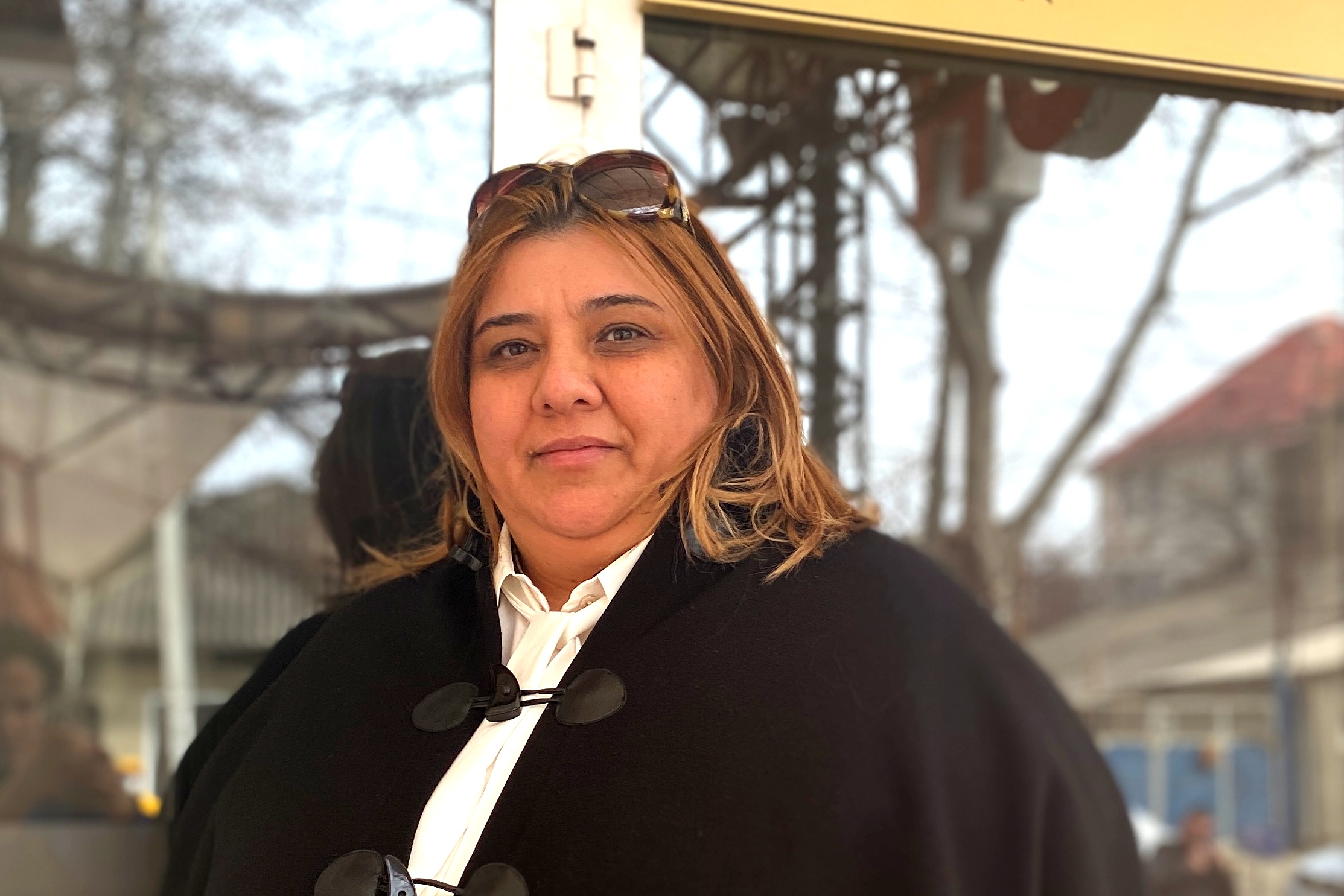When the war in Ukraine began, Moldova, a small country nestled between Ukraine and Romania and Europe’s poorest nation, initially thought it could accommodate 15,000 refugees. To nearly everyone’s surprise, it received nearly 27 times that number.

Argentina, 45, is a manager at Zarea hotel in Chisinau. © Sarah Pilchick / HelpAge International
According to UNHCR, by 7 April, Moldova had welcomed more than 400,000 Ukrainian refugees, of which more than 95,000 have chosen to remain in the country. They are housed in private homes, public centres, and hotels around the country.
One such hotel is Zarea Hotel in the centre of Chisinau, which has received 311 Ukrainian guests since the start of the war. It has been managed by Argentina, 45, for the past two years.
She says her guests have mostly come from Kyiv, Mariupol, Kherson, and Odessa, with 20 to 40 Ukrainians arriving each day until the hotel was full. Some went to stay with relatives in Romania and Germany, but others are remaining at Zarea indefinitely. All have experienced terrible things.
“They are all trying not to show you their emotions,” Argentina says of her Ukrainian guests, “but inside, you know they are crying.”
The stories she has heard since the start of the war have clearly affected her, and as she relates to me the story of one family from Mariupol, her eyes fill with tears.
Argentina talks about one mother who told her about how she tried to reassure her children during the journey to Chisinau by telling them that they would return home soon, that they were just leaving for a short while, that their house was safe. To prove this, they all watched live security camera footage of the house as they travelled. At one point, when refreshing the video, the house had simply disappeared, flattened by a shell.
Argentina can see how frustrating the process of living as a refugee can be and how everyone just wants to live their ordinary lives, knowing their loved ones are safe.
“They’re all trying to stay active,” she says, “but they’re bored. All there is to do is eat and sleep. We try to have entertainment and activities for kids, but for adults, there is not much more we can do. Parents and grandparents are more focused on the children’s happiness than their own.”
Argentina proudly shows me photos of drawing activities for children and groups playing with a multi-coloured playground parachute that many would recognise from their own childhoods. There have been outings for the children that older family members have joined. Groups from Zarea have visited the Chisinau Zoo, and there are plans to take them to a nearby nature reserve as the weather warms.
She says that many of her Ukrainian guests are deeply afraid for the future. Even though they recognise they’re safe in Moldova, they are scared they will be forced to move on from the hotel (never, she says) or that they will run out of food.
At breakfast, she often notices guests, particularly older ones, wrapping biscuits and other food in napkins to save for later. This behaviour is one she recognises from stories told by her grandparents and other older people who engaged in the same sort of food hoarding during the Second World War for fear they would run out. She made it clear that they would want for nothing while guests at her hotel.
She explains how Ukrainian refugees are made to sign for every piece of aid they receive, from food to clothing and toilet roll, and says that many of her guests feel humiliated – she would too, were it her. She is uncomfortable that she has to enforce these rules.
“They feel like ‘second-hand people’ and they are not,” she says. They are very welcome here.”
Zarea Hotel is one of 49 Refugee Accommodation Centres around Moldova where HelpAge International is distributing food and hygiene kits. Based on the needs and resources of the centres, HelpAge arranges for two or three hot meals to be provided a day, prepared by local caterers and based on specific identified needs.
By Sarah Pilchick, Humanitarian Communications Manager, HelpAge International
Find out what we’re doing to help older people in Ukraine.
